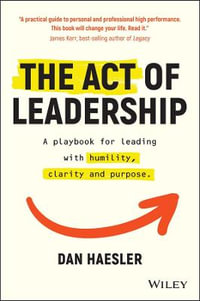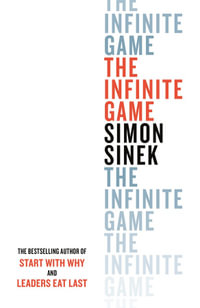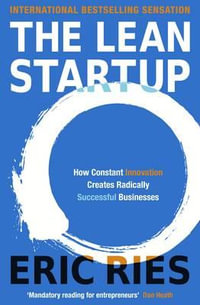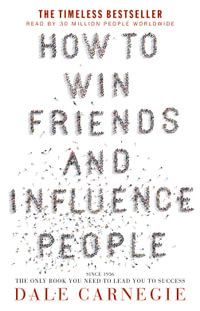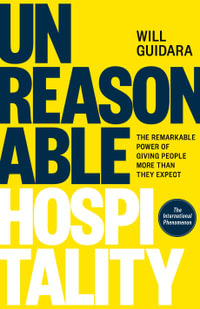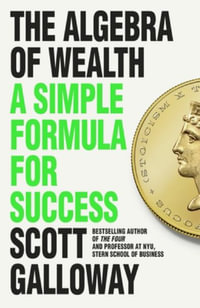
The Sixth Sense
Accelerating Organizational Learning with Scenarios
By: Kees van der Heijden, Ron Bradfield, George Burt, George Cairns, George Wright
Hardcover | 2 August 2002 | Edition Number 1
At a Glance
320 Pages
24.1 x 16.6 x 2.4
Hardcover
$101.62
or 4 interest-free payments of $25.41 with
orAims to ship in 7 to 10 business days
"The Sixth Sense" behandelt ausfuhrlich die Veranderungen in den Unternehmenssystemen, den Strukturen und den Menschen. Szenarios werden hier explizit mit Strategie und Handeln verbunden.
Innovativer Ansatz: Szenarios werden als Methode des organisatorischen Lernens behandelt.
Hier lernen Manager, wie sie mit dem zunehmenden Wandel im Unternehmensumfeld zurechtkommen und wie sie mit Hilfe von Szenarios Denkfehler uberwinden (durch Aufzeigen, dass die Zukunft keine Nachbildung der Vergangenheit ist).
Praxisorientiert: Die Autoren zeigen anschaulich, wie man Szenariodenken in der Praxis anwendet.
"The Sixth Sense" - der unverzichtbare Ratgeber fur Manager und Consultants.
Industry Reviews
"?the book will provide a valuable guide to what is happening?" (The Business Economist, Vol.34, No.2, 2003)
ABOUT THE AUTHORS x
INTRODUCTION 1
The Quest for a Clear Vision of the Future 1
Unknown Variables, Uncertain Future 1
The Significance of Scenario Thinking 2
Developing the Sixth Sense – the Approach to Scenario Thinking 5
How this Book is Organized 6
1. PREPARING FOR THE FUTURE 11
Understanding Organizational Success 12
Success and Failure are Inevitable 12
Understanding success by understanding failure 13
Explaining the Sharpbenders Research: Why Organizations Fail 14
Maintaining Organizational Performance: Problems 19
Sustaining Competitive Advantage – the Battle of Canon and Xerox 19
Yahoo! – Competing in Fast-moving Markets 23
Building a Colourful New Future Brick by Brick – the Story of Lego 26
Success Stories 28
Providing Customer Value – the Rise of Tetra Pak 28
Entering New Markets and Maintaining Growth – Nokia Answers the Call 32
Barriers to Strategic Success 34
Lessons Learned 34
Creating Value – The Difference Between Success and Failure 36
Value is Created in a Domain of Scarcity 37
Summary: Understanding the Barriers to Scenario Planning 37
2. HOW MANAGERS THINK ABOUT THE FUTURE 41
Understanding Management Thinking 42
Routines in Management Thinking 43
Over-reliance on Routines: Success Formulas and Managerial Thinking 44
Biases in thinking 46
The Relevance of Framing Flaws 46
How a Failed Product Launch Actually Boosted Sales: the Sparkle of New Coke 47
Confirmation Bias 50
Hindsight Bias 51
The Problem of Overconfidence 52
The Limitations of Judgemental Forecasting 53
Decision Avoidance 54
Escalation of Commitment 54
Bolstering, Procrastination and Buck-Passing 57
Example of a Management Team Facing a Decision Dilemma 58
Thinking Flaws: A Synthesis 61
Overcoming Strategic Inertia: the Potential Benefits of Scenario Planning 63
A Scenario is not a Forecast of the Future 63
Scenarios Focus on Key Uncertainties and Certainties About the Future 63
Scenarios Help Identify Information to Anticipate How the Future will Unfold 64
Typical Outcomes of the Scenario Planning Process 65
Summary: Overcoming Thinking Flaws with Scenario Planning 65
Summary Checklist – the Limits to Managerial Thinking 65
3. HOW ORGANIZATIONS THINK ABOUT THE FUTURE 69
Flaws in Organizational Thinking 70
Communication Difficulties 71
Group-think in Organizations 72
Fragmentation in Organizations 73
Limitations Imposed by Identity 75
Balancing Change and Constancy 75
Overcoming the Limits of Organizational Identity: the Example of IBM 77
Organizational Lock-in 78
Understanding Organizational Lock-in 78
The Consequences of Organizational Feedback Loops and Lock-in 79
Behavioural flaws 80
Learning and Action 80
An Organizational Dilemma 81
Management and Action 82
Overcoming the Pathologies of Organizational Life 84
Using Organizational Processes 84
The Benefits of Scenario Planning Interventions 85
Summary: How Organizations Think About the Future 85
4. THE IMPACT OF CULTURE AND CULTURAL ASSUMPTIONS ON STRATEGY 89
Understanding the Impact of Cultural Issues 90
The Significance to Strategy of Globalization and Cultural Issues 91
From Mickey Mouse to The Lion King: the Tale of Disney in France 92
Defining Culture for Pragmatic Purposes 96
Recognizing Differences in Others 96
The Value of Scenarios in Assessing the Impact of Cultural Factors 97
National Cultural Differences and the Role of Scenario Thinking 98
Global Organizations and Local Service Offerings: IKEA Shelve Their Universal Approach 98
How Can We Explore Differences in National Cultures? 100
Differences in Organizational Cultures 103
A Clash of Personality: The Merger of Daimler-Benz and Chrysler 103
Organizational Culture and the External Environment 105
Differences in Professional Cultures Within Organizations 106
The Call of the Wild: How Varying Interpretations of Management Intent Divided Senior Executives in an ITC Business 106
Moving Beyond Cultural Preconceptions and Stereotypes 108
Understanding Cultures Across Boundaries 108
Language, Meaning and Overcoming Ambiguity 109
Increasing Diversity in a World of Similarity 109
The Starting Point for Cultural Appraisal 110
Developing Multiple Perspectives 110
The Application of Scenario Thinking to Cultural Understanding 111
Applying the Defining Factors of Organizational Culture to Your Organization 111
Developing a Scenario Culture 112
Key Questions 114
5. SHAPING THE FUTURE: THE EMERGENCE OF MODERN SCENARIO TECHNIQUES 117
Scenario Planning: the Human Dimension 118
Bringing the Future into the Present: The Story of Margareta Lonnberg 118
Memories of the Future: Scenarios Filter What We Perceive 119
Scenarios: A Cornerstone of Human Thought 120
Scenario Thinking and War Games 121
Uncertainty and Crisis 121
War Game Preparations 122
A Natural Scenario Planner: Field Marshal Lord Alanbrooke 123
Crisis Management Training 124
The Era of Possibility: the Makeable Post-war World 124
The Age of Forecasting and Systems Engineering 124
The US Perspective 125
The Rand Corporation: the Emergence of Scenario Techniques 126
The Impact of Herman Kahn and the Hudson Institute 127
The French Perspective 128
Challenging Established Thinking: the Development of Scenarios in the 1970s 129
The Club of Rome 129
Royal Dutch/Shell and the Problem of Predictability 131
The Development of Scenarios and Strategy During the 1980s 134
Factors Affecting the Use of Scenario Techniques in Business 135
Scenarios Become Popular 135
Scenario Planning and Other Strategic Approaches 136
The 1990s: Scenario Planning and Organizational Learning 138
The Age of Complexity, the Limits of Certainty – and the Rise of Scenario Planning 138
Organizational Learning 139
The World of Identity, Experience and Change 140
Summary: the Benefits of Scenario Planning 142
Enhanced Perception 142
Integration of Corporate Planning 142
Making People Think 143
A Structure for Dealing with Complexity 143
A Communications Tool 143
A Management Tool 144
Summary Checklist – Building an Understanding of Scenario Thinking in Your Organization 144
6. DEVELOPING THE SKILLS FOR LONG-TERM SURVIVAL AND SUCCESS: PRINCIPLES OF THE SCENARIO PROCESS 147
The Need for a Scenario Process 148
Scenarios and Scenario-based Organizational Learning 150
Rationalistic Decision-making 150
Cause and Effect Thinking 153
Systems Thinking 154
Mental Models and their Limitations 158
The Strategic Conversation 161
How Scenarios Tackle the Problems of Organizational Thinking 162
Surfacing Mental Models 163
Eliciting the Agenda 164
Activating and Integrating Intuitive Knowledge 166
Analysing Driving Forces 169
Scenario Telling 170
Organizational Learning 171
The Process of Organizational Learning 172
Scenario Planning as a Way Towards Adaptive Organizational Learning 174
Memories of the Future – Creating the Jolt 175
From Scenarios to Adaptive Behaviour 178
Making it Happen 180
Summary: Developing the Skills of Survival 184
7. SCENARIO PLANNING IN THE ORGANIZATIONAL CONTEXT 187
Introducing the Scenario Method 188
Scenarios for the Future of e-Government and the Impact of Information and Communications Technologies (ICT) 190
Background 190
The Story of the ‘People’s Kailyard’ 191
Stage 1: Structuring the Scenario Process 192
Identifying Knowledge Gaps 192
Building the Scenario Team 193
Timing for the Scenario Project 194
Stage 2: Exploring the Scenario Context 195
Interviewing Key Players and Widening the Conversation 195
Setting the Scenario Agenda 199
Setting the Scenario Agenda: the Northshire Example 200
The Role of the Remarkable Person 201
Stage 3: Developing the Scenarios 202
Determining the Driving Forces and Testing the Outcomes 202
Clustering the Driving Forces: the Northshire Example 204
Dealing with Impact and Uncertainty 206
Scoping the Scenarios 209
Setting the ‘Limits of Possibility’ for Alternative Futures: the Northshire Example 210
Fleshing out the Storylines 213
Beyond the Kailyard 215
Stage 4: Stakeholder Analysis 216
Stage 5: Systems Thinking 219
Stage 6: Impacting Organizational Thinking and Action 220
Looking for the Organizational Jolt 220
Identifying the Early Indicators 220
Action Planning from the Future to the Present: the Northshire Example 221
Summary: Effective Scenario Planning 223
Summary Checklist – Implementing a Scenario Planning Process 224
8. SCENARIO PLANNING: TAKING CHARGE OF THE FUTURE 229
The Energetic Problem Solver 230
Observation – the Cornerstone of Strategic Success 231
Purposeful Scenario Work 232
Project 1: Making Sense of a Puzzling Situation 234
The Analytical Approach 234
The Limitations of Analysis 235
Purposeful Analysis and How Scenarios Steer Attention 236
Combining Intuition with Rational Analysis: the Iterative Scenario Approach 236
Facing the Important Questions 238
Project 2: Developing Strategy 239
Defining Strategy 239
The Stakeholder Game 239
Strategic Aims 240
The Business Idea 242
Friction Forces and Barriers to Entry 244
Developing Distinctiveness 246
The Role of the Business Idea in Strategy 247
Business Ideas and Scenarios 250
The Strategic Journey 252
Project 3: Improving Organizational Anticipation 255
Multiple World Views – The Limits of the Rationalistic Approach 255
The Mont Fleur Story 258
The Role of Scenarios in Strategic Conversation 260
Creating the Scenario-based Strategic Conversation 264
Project 4: Building an Adaptive Learning Organization 266
Action and Experiential Learning 266
The Strategic Journey of Project 2 Revisited 266
What is Adaptive Organizational Learning? 268
Building a Scenario Culture 270
Team Empowerment 272
The Across-team Strategic Conversation 273
SUMMARY 276
Rethinking the Future – the Value of Scenarios in Developing Competitive Advantage 276
Developing The Sixth Sense 277
GLOSSARY 279
REFERENCES 293
INDEX 299
ISBN: 9780470844915
ISBN-10: 0470844914
Published: 2nd August 2002
Format: Hardcover
Language: English
Number of Pages: 320
Audience: General Adult
Publisher: John Wiley & Sons (UK)
Country of Publication: US
Edition Number: 1
Dimensions (cm): 24.1 x 16.6 x 2.4
Weight (kg): 0.64
Shipping
| Standard Shipping | Express Shipping | |
|---|---|---|
| Metro postcodes: | $9.99 | $14.95 |
| Regional postcodes: | $9.99 | $14.95 |
| Rural postcodes: | $9.99 | $14.95 |
How to return your order
At Booktopia, we offer hassle-free returns in accordance with our returns policy. If you wish to return an item, please get in touch with Booktopia Customer Care.
Additional postage charges may be applicable.
Defective items
If there is a problem with any of the items received for your order then the Booktopia Customer Care team is ready to assist you.
For more info please visit our Help Centre.
You Can Find This Book In
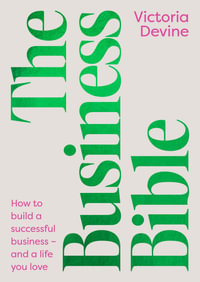
SIGNED COPY
RRP $36.99
$33.25
OFF

BOXING DAY
RRP $32.95
$30.25
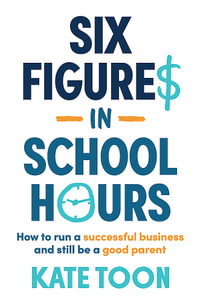
BOXING DAY
RRP $32.99
$13.25
OFF

BOXING DAY
RRP $32.95
$13.25
OFF




